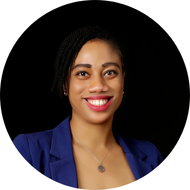 Denise Adaoyibo Okpala
Denise Adaoyibo Okpala
Denise is a Chartered Scientist and Chartered Marine Scientist who has worked with the Economic Community of West African States for over 14 years on a variety of programs for their Environment and Natural Resources, Cross Border Cooperation, SAP project and Grants Management. Before this, she worked as an Environmental Scientist in the Oil and Gas Division of the Federal Ministry of Environment and as a Marine Scientist at the National Institution for Oceanographic and Marine Research, both in Nigeria. She is an Expert Reviewer of the IPCC and an Application Review Panel Member, Board Trustee, and member of the Policy Committee of the Institution of Environmental Sciences.
She is passionate about Diversity, Equity and Inclusion and serves as a Member of the Equity, Diversity and Inclusion Advisory Group of the British Ecological Society. She is also a Commission Member of the IUCN and serves as a Technical Reviewer and Facilitator of Motions for the 2025 IUCN World Conservation Congress. At the IUCN, she is also a core member of the Ecosystem Governance Thematic Group (EGTG) within the IUCN Commission on Ecosystem Management. She is a Founding Fellow of the Women for the Environment Africa Program, a leadership program established to put women at the heart of transforming Africa’s environmental conservation movement. She volunteers for the outreach committee of Ecologists without borders (EcoWBs) in which she is primarily responsible for expanding their reach and impact by building relationships with various organizations, including community groups, businesses, and government agencies.
Denise has a Bachelor’s degree in Marine Sciences from the University of Lagos, a Master’s degree in Environmental Planning and Management from Johns Hopkins University and is currently carrying out her Doctoral Research at University College London, where her research is on advancing sustainability initiatives in pharmaceutical supply chains to reduce waste in healthcare facilities. She is also a Postgraduate Teaching Assistant and Research Assistant. Denise is very passionate about marine and coastal zone management particularly the impact of marine litter on community health, and she seeks to apply her interdisciplinary experience to making our water bodies more sustainable.
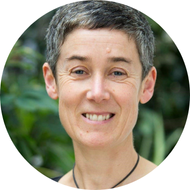 Sian Davies-Vollum
Sian Davies-Vollum
Sian is a Professor of Environmental Geoscience with expertise and qualifications that span Earth and environmental sciences. She has a broad appreciation of coastal and marine settings and has worked in Europe, North America and West Africa. Originally focusing on sedimentology and physical processes in wetland and coastal systems, her research has grown to include impacts of climate change. As she has embraced multi-disciplinary approaches and worked with researchers from across natural and social science, she has developed a focus on sustainable development and coastal governance.
The breadth of her coastal work includes but is not limited to shellfish toxicity, fisheries, impacts of sea level rise, coastal management, and policy. Sian has worked in academia for 30 years and has extensive leadership experience through multiple senior roles in Higher Education. She is currently Deputy Dean of a large multi-disciplinary faculty at the University of Northampton. This role includes oversight of faculty research, learning and teaching, apprenticeships, academic partnerships and Equity, Diversity and Inclusivity. She is also a trustee of the Geological Society and Chair of Universities Geoscience UK, the organisation that represents Geoscience in UK Higher Education.
Sian founded and leads the Resilient Lagoon Network that brings together coastal researchers from across West Africa. She is a member of the Europe-based “Rethink Blue” COST-Action, which is overseeing events and publications on the blue economy. She belongs to the Future Earth Coasts network, as part of their Just Transitions working group.

David Jones
David is a marine scientist, speaker, writer, published photojournalist, filmmaker, diving instructor, and passionate ocean advocate. His professional journey began with a diverse and occasionally distinguished career in the British Army, where he served as a military engineer, diver, and bomb disposal officer. When not deployed, he was most likely found on the rugby pitch or ski slopes. After leaving the military, David pursued his lifelong passion for the ocean by entering the diving industry. His expertise underwater soon led to work on high-profile TV and film productions alongside David Attenborough, Bear Grylls, and Ben Fogle. He was a key contributor and scientific advisor to the award-winning documentary A Plastic Ocean, a six-year project that helped bring global attention to marine plastic pollution.
For the past 15 years, David has focused his career on marine conservation, particularly in the areas of plastic pollution, biodiversity, and sustainable coastal management. He holds an MSc in Coastal and Marine Resource Management and a PhD in Coastal and Marine Ecology. His research centred on citizen science approaches to monitoring microplastic and mesoplastic pollution. A strong advocate for public engagement, he believes education and storytelling are essential tools for driving effective marine conservation.
David is the Founder and CEO of Just One Ocean, a conservation organisation dedicated to protecting the ocean through science, communication, and education. He works closely with policymakers, NGOs, and communities, and has presented at conferences and policy forums around the world. Known for translating complex marine science into accessible insights, he is a respected voice in both academic and public arenas. A published author in marine science journals and an experienced media contributor, David is a Fellow of the Royal Geographical Society and a Member of the Institution of Environmental Sciences. He is proficient in GIS-based spatial analysis, has served on expert advisory panels, and continues to influence UK marine and coastal policy where possible.
Jemma Lonsdale
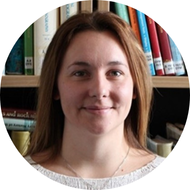
Jemma is an environmental consultant with over 13 years of experience working in the marine and coastal sector, spanning both public and private sectors. Her academic foundation was built at the University of Hull, where her degrees, focused on environmental management and environmental impact assessment (EIA) in the marine environment. Following her studies, she spent 11 years working in the Civil Service, where she was involved in a wide range of coastal and marine projects. During this time, she worked closely with regulators, government bodies, and stakeholders to shape policy and improve regulatory frameworks around EIA and marine permitting. She developed a deep understanding of the science-policy interface and the importance of using robust scientific evidence to inform sustainable decision-making. Her work often required integrating marine, coastal, and terrestrial assessments, especially on complex projects such as managed realignment schemes.
After more than a decade in government, she moved into the consultancy sector and is currently working at Royal Haskoning DHV. Here, Jemma contributes to marine and coastal developments by bringing scientific and regulatory insight into environmental assessments. Jemma has collaborated with academic and regulatory colleagues to explore the environmental implications of marine activities, including the role of blue carbon in climate mitigation strategies. These partnerships have allowed her to contribute to the evolving science underpinning policy and regulatory decisions in the marine space.
Jemma’s motivation for joining the Marine and Coastal Science Community Steering Group is driven by a passion for promoting best practices, knowledge-sharing, and innovation in the sector. She believes that her combined experience in the public sector and consultancy offers a valuable perspective to the group, enabling her to understand and bridge the needs of practitioners, policymakers, and developers. Jemma aims to support the development of resources and initiatives that empower the community to navigate emerging challenges in marine and coastal science. She is particularly keen to foster collaboration within the community and ensure that the Steering Group reflects the diverse needs and experiences of its members, and is committed to transparent, open communication and to supporting a responsive and inclusive approach to shaping the community’s priorities.
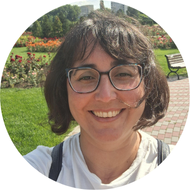
Patricia López-Garcia
Patricia is a marine scientist with a background in oceanography, marine chemistry, and sensor development. She holds a PhD and a degree in marine science from the University of Las Palmas de Gran Canaria, and a degree in industrial chemical engineering. With over two decades of experience across academia and applied marine research, her work has spanned laboratory research, project management, and the implementation of quality standards.
Patricia has worked at institutions including the University of Las Palmas, the Oceanic Platform of the Canary Islands (PLOCAN), and is currently based in the Ocean Technology and Engineering group (OTE) at the National Oceanography Centre (NOC) in Southampton. As Sensor Science Delivery Lead, she coordinates the scientific, technical, and engineering aspects of OTE projects, with a focus on developing and deploying novel sensor technologies.
She has published numerous publications, participated in national and international collaborations, and contributed to shaping best practices in marine monitoring. Most recently she has co-led an international initiative from the OceanGliders programme to develop an SOP for autonomous oxygen measurements that is not only recognised by the GOOS and glider community but also as an example of a ‘Better Practice’ following the ocean practices maturity model. At the national level, she was selected as a Future Marine Research Infrastructure (FMRI) Grand Challenge Champion for which she co-led the pollution chapter.
Denis Thompson
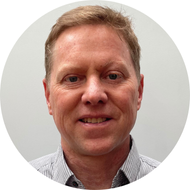 Denis is an experienced scientist with a diverse career spanning 25 years in industry, consulting and education. His academic foundation includes a master’s degree in Biochemistry and a Certificate in Air Quality Control. Seeking to build on his scientific skills and leadership experience in industry and education, Denis is currently in the process of setting up an environmental consultancy offering services in Air Quality, Chemical Risk Management and Environmental Management Systems.
Denis is an experienced scientist with a diverse career spanning 25 years in industry, consulting and education. His academic foundation includes a master’s degree in Biochemistry and a Certificate in Air Quality Control. Seeking to build on his scientific skills and leadership experience in industry and education, Denis is currently in the process of setting up an environmental consultancy offering services in Air Quality, Chemical Risk Management and Environmental Management Systems.
He believes that his strong scientific grounding and diverse experience has the potential to give him a unique perspective that could facilitate a connection between the environmental issues affecting marine and coastal areas and the practicalities of integrating science, industry and education in tackling these complex issues. Something of a personal interest in being a part of this group comes out of a real passion for the sea: Denis grew up in a small coastal town in South Africa, spending most of his free time in the ocean. As an ocean enthusiast and a professional environmentalist he really values the opportunity to contribute to and learn from this group, and to play a role in the sustainability of our coastlines and coastal communities.